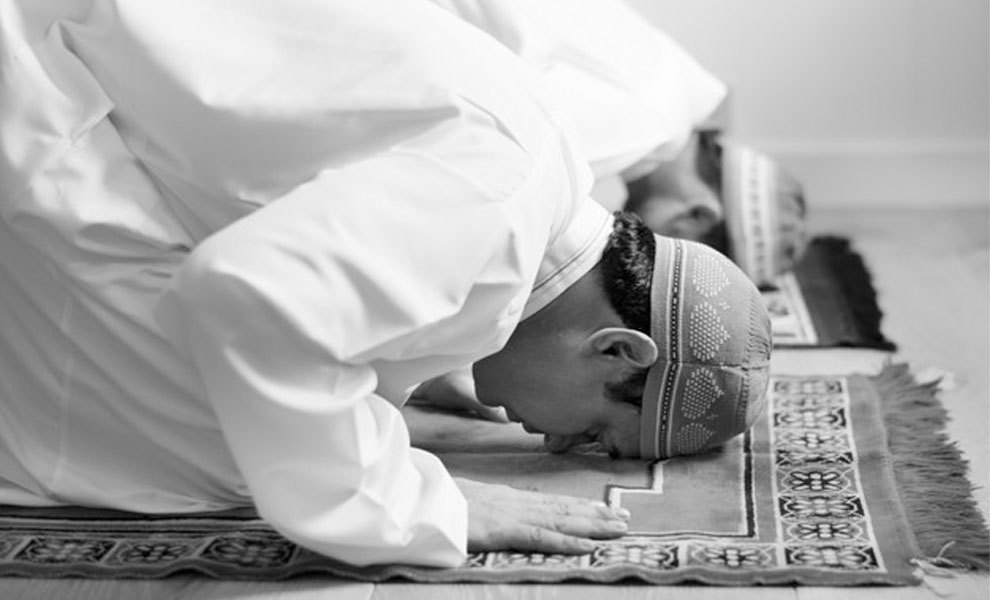What Is the Basis of Reciting the Qunut in the Fajr Prayer According to the Shafi’i School?
Shafi'i Fiqh
Answered by Ustadh Shuaib Ally
Question: Assalam aleykum,
What are the proofs for the shafi’i position of regularly reciting the Qunut in the Fajr prayer?
Answer: Assalamu alaikum wa rahmatullahi wa barakatuh,
I pray that you are in the best of health and faith, insha’Allah.
The Shafi’i school holds that the Qunut should be recited in the Fajr prayer, irrespective of whether or not a difficult time (nazila) has befallen the community.
Some of the Evidence for a Contrary Position
Those who hold a different opinion, Imam al-Nawawi says, use among the following as proof:
-Anas (may Allah be pleased with him) said, “the Prophet (peace be upon him) recited the qunut for a month after the ruku’, praying against groups of Arabs, then he left it” (Bukhari, Muslim).
-Abu Huraira (may Allah be pleased with him) said, “the Prophet (peace be upon him) recited the qunut during his prayer for a month, praying for such and such a person, then he left off supplicating for them” (Bukhari, Muslim).
-Sa’d b. Tariq said, “I told my father, ‘Father, you prayed behind the Messenger of Allah (peace be upon him), Abu Bakr, ‘Umar, ‘Uthman and ‘Ali; did they use to recite the qunut in Fajr?’ He said, ‘My son, it is something new’” (Nasa’i, Tirmidhi)
-Ibn Mas’ud (may Allah be pleased with him) said, “the Messenger of Allah (peace be upon him) never recited the qunut in any of his prayers”
-Ibn ‘Abbas (may Allah be pleased with him) said, “Reciting the qunut in Fajr is a bid’ah.”
-Umm Salamah reported that the Prophet (peace be upon him) prohibited reciting the qunut in Fajr (Bayhaqi).
Some of the Evidence for the Shafi’i position
Nawawi argues for the Shafi’i position using among the following as proof:
-That reciting it was the opinion of many of the pious predecessors, including Abu Bakr, ‘Umar, ‘Uthman, ‘Ali, Ibn ‘Abbas and al-Baraa’ b. ‘Azib (may Allah be pleased with them all). It was also the opinion of some of the successors, and many later scholars. This includes Ibn Abu Layla, al-Hasan b. Salih, Malik and Dawud.
-Anas (may Allah be pleased with him) reported that “the Prophet (peace be upon him) recited the qunut for a month, praying against them, then left it; with respect to Fajr, he didn’t stop reciting the qunut until he left this world” (an authentic hadith narrated and authenticated by a number of leading hadith authorities; those who have clearly categorized it as authentic include al-Balkhi, al-Hakim in numerous places in his books, and al-Bayhaqi. Al-Daraqutni has also narrated it with authentic chains of transmission).
-The school responds to the “then he left it” in the reports of Anas and Abu Huraira as meaning that the Prophet (peace be upon him) stopped praying against and cursing the disbelievers only, not the he stopped reciting the qunut altogether. Alternatively, it could mean that he stopped reciting the qunut in other prayers, not Fajr. The school takes this position in making sense of all of the available evidence, including the hadith of Anas in which he said “he didn’t stop reciting the qunut until he left this world.”
-The school responds to the hadith of Sa’d b. Tariq above by arguing that those who have narrated the presence of the qunut in Fajr have more information than him, and are greater in number, and so should be given precedence.
-The school responds to other reports, such as that of Ibn Mas’ud, Ibn ‘Abbas and Umm Salamah, by arguing that they are weak and contain serious defects in their chains of transmission.
Reciting the qunut in Fajr is a recognized and acceptable difference of interpretation between schools of law. The issue demonstrates the manner in which different schools make use of and handle competing pieces of evidence, and how it leads to varying opinions on an issue.
Please consult Nawawi’s Majmu’ for further detail.
Source: al-Majmu’
Shuaib Ally
